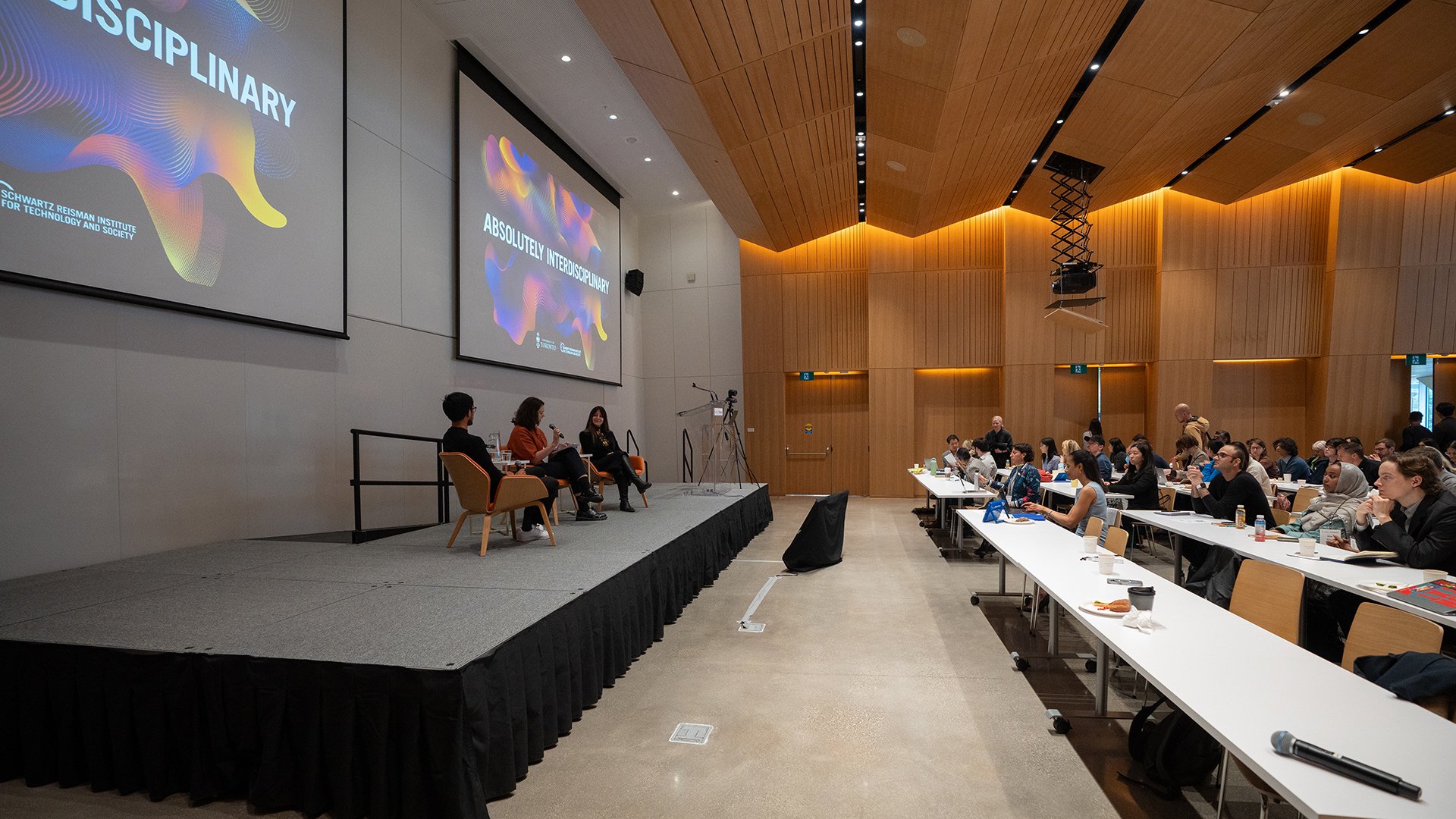SRI Graduate Fellows invite submissions for 2022 workshop, “Technologies of trust”
The 2022 SRI Graduate Workshop invites graduate and early career scholars to present their work at a one-day, virtual event on June 20th, as part of Absolutely Interdisciplinary 2022. Organized by SRI’s Graduate Fellows, this year’s workshop centers on the theme of trust, broadly defined, and its relationship to technology and society. Deadline for submissions is April 12, 2022.
The 2021–22 cohort of Graduate Fellows at the Schwartz Reisman Institute for Technology and Society (SRI) invites graduate and early career scholars to present their work at the second Schwartz Reisman Graduate Workshop, which will take place virtually on June 20, 2022, as part of SRI’s conference Absolutely Interdisciplinary. We welcome 15-20 minute presentations on the theme of trust, broadly defined, and its relationship to technology and society.
2022 theme: “Technologies of trust”
As accelerated technological change alters our society's methods of generating, recording, and communicating information, what does this mean for trust, and what role does trust play in developing and deploying these technologies?
Understanding trust across disciplines is critical to comprehending our world's social, political, and economic dimensions, and how we might work to improve them. SRI's mission to align technology with human values raises the question of how to cultivate appropriate trust in technology so that we can deploy it safely, effectively, and ethically into the world. To that end, debates on trust are needed.
Understanding trust in the modern world requires diverse fields to work together in thinking about the foundational building blocks of trust, and how these might be promoted in practice. How do we define trust? How are trust and truth related? Is trust necessary for morality? When is trust in technology warranted or unwarranted? What makes a system trustworthy and what are the implications for system design? Who arbitrates trust, or can it be decentralized? What are the consequences of misplaced trust or distrust? How could new and emerging technologies impact societal trust?
Call for Papers
Researchers from all fields are welcome to submit their work by April 12, 2022. We are interested in a wide range of topics at the intersections of human trust, technology, and society. Relevant questions may involve but are not limited to:
How do we define who are trustees and trustors in emergent technologies? What trust goals should we aim to support, for whom, and why?
How do historical, social, and individual factors influence trust in technology, government, or institutions?
What are the potentially harmful effects of trust (e.g., weaponizing trust, inducing over-trust in AI, etc.)? How do we better foster trust calibration? How do we avoid “ethics washing” for emerging technologies?
Given the contextual nature of trust, can we standardize evaluation metrics of trust?
How can we address unintentional adverse effects of societal trust in technology or institutions (e.g., inadvertently triggering cognitive biases leading to over-trust)?
Researchers who are interested in these areas are invited to submit abstracts up to 2,000 characters. Submissions are single-blind reviewed (i.e., submissions will include the author’s names and affiliation). The workshop's organizing and program committees will review the submissions and the accepted submissions will be notified in late April.
How to submit
Submit your abstract before April 12, 2022. Got a question or need more information? Email the SRI team at hello@torontosri.ca.
Want to learn more?
Read about the sessions from last year’s workshop, “Views on Techno-Utopia,” on “Identity in Utopia” and “Data in Utopia.”
Visit the Absolutely Interdisciplinary conference website to learn more about the event.
About the Schwartz Reisman Institute for Technology and Society
The Schwartz Reisman Institute for Technology and Society (SRI) at the University of Toronto is a multidisciplinary research and solutions hub investigating the social effects of powerful emerging technologies like artificial intelligence. SRI integrates research across traditional boundaries to build human-centred solutions. Its research team comprises faculty and graduate students from across the academy, from machine learning, computer engineering, epistemology, systems theory, and ethics to legal design, systems of governance, religious studies, and human rights.










